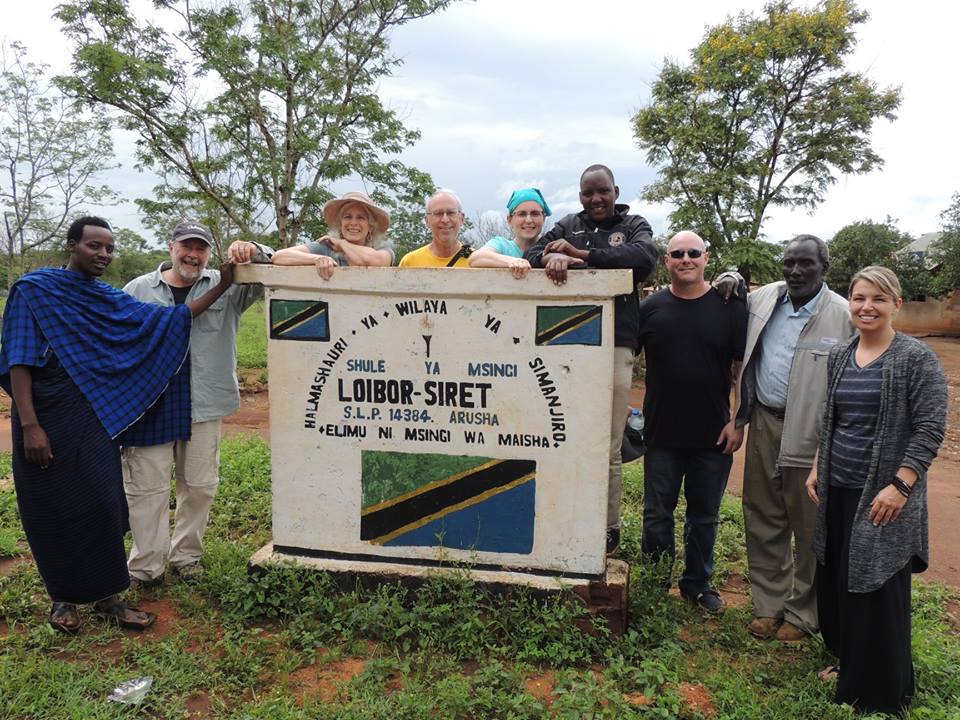What exactly is the One Health major?
The One Health major is at the intersection of human, animal, and ecosystem health. As the human population grows, people are coming into closer contact with animals. Because of this, the world may see more zoonotic diseases (e.g., Ebola, COVID-19) spreading to human populations. As human populations grow, they put more pressure on the environment and introduce more environmental chemicals and stressors, many with unknown and some with transgenerational effects. This major will set the scientific foundation and then explore some of the vectors that transmit disease, discuss global health issues, examine personal ethics, investigate the impacts of chemistry, and delve into the interface of humans, animals, and the environment. This major prepares students to address these health issues in an ever-changing landscape.
What classes do One Health students typically take?
Students are required to take the Introductory Biology sequence (Bio 114/115; Bio 124/125), the Introductory Chemistry sequence (Chm 114/115; Chm 124/125), Introduction to Environmental Science (Env 105), Statistics (Mat 114), and Introduction to Epidemiology (Hes 261). Students then select courses from the categories of disease transmission, human health, ethical perspectives, animal interactions, and topics in chemistry. Students then complete the major with a capstone course.
Is this major commonly found at other colleges and universities?
One Health is not a common degree, but it should be. Many schools offer courses that include One Health concepts, but few have organized the coursework into a degree program. In Missouri, a One Health degree is offered at Westminster College and Fontbonne University. Given the current pandemic, it has become increasing clear that the world needs broadly trained scientists working at the intersection of these three health sectors to more clearly understand emerging diseases.
What do you think the benefits are of receiving a degree in One Health at Westminster versus elsewhere?
As the sole institution in Missouri offering a One Health degree, Westminster College provides a unique opportunity for students to explore this interdisciplinary field. Our comprehensive curriculum equips students with the knowledge and skills needed to address complex health challenges at the human-animal-environmental interface.
What will students do with this major after they graduate?
Students who graduate with this major can find employment with state and federal offices of public health. They can also go on to a graduate degree in One Health (OHM) or Public Health (MPH), or with some additional coursework they can go on to professional school for medicine or veterinary science.
For more information on the One Health degree at Westminster, please contact Dr. Dawn Holliday at Dawn.Holliday@WCMO.edu or 573-592-6125.

Full group picture shows Dr. Amanda Gowin, Dr. Dawn Holiday, and Dr. Bob Hansen, emeritus faculty.
Westminster College is the only Institution to offer a Bachelor’s degree in One Health in Missouri. The concept of One Health is almost two hundred years old and well known to scientists and health practitioners, but has remained, until recently, unknown to the general public. In the last year, government agencies, scientists, and the public have used One Health to increase cooperation, broaden perspectives, and better understand the animal origin and subsequent human spread of COVID-19. One Health studies the intersection of human health, animal health, and ecosystem health. This discipline by design breaks down the traditional silos of academic study and approaches health from an interdisciplinary perspective. Now more than ever, it is important to approach complex issues with cooperative understanding and strategies.
“Majoring in One Health makes me feel whole, as if I am choosing the right path of life for myself that will not just help me make money but also will be what I love doing.”
Shelby Harrison, Class of 2022
A One Health degree, prepares students for numerous future careers. Some students may choose to pursue professional school in the veterinary sciences, for example at the University of Missouri, whereas others could pursue a Master’s in Public Health for example at Saint Louis University. Below are some external websites that may be of interest to learn more about One Health:
One Health Information from the Centers for Disease Control and Prevention: https://www.cdc.gov/onehealth/index.html
One Health Commission: https://www.onehealthcommission.org/en/why_one_health/what_is_one_health/Yes! Nearly all of our students get first-hand research experience. There are two ways for you to be involved in research. One, there will be opportunities in some of the courses to do independent projects in the lab. Or, if you have a hypothesis of your own or want to work with a faculty on their research, you can get independent study course credit for it!
One Health is an integrative major by design. Your core classes combines insights from Biology, Biochemistry, and Environmental Science majors and the upper level coursework extends that foundation and bridges disciplines looking at human health, animal health, disease transmission, and ethics. Pursuing One Health at Westminster represents a rare opportunity at the undergraduate level, since most One Health programs in the United States are at the graduate-level.
No. An internship is not required for the One Health major, but could provide you with valuable experience. For example, as a One Health major you may want to apply to Veterinary School which requires experience hours with large and small mammals; Westminster College’s Internship Program can help you secure that experience for a more competitive application. You can also work with a faculty sponsor in our department to help sharpen the skills and experience you gain.
Because of the integrative nature of the major, the possibilities are wide-ranging. Students are involved in Tri-Beta the National Biology Honor Society, the living-learning community called EcoHouse, the gardening club (which got a new greenhouse in 2019!), Pre-Healthcare Professionals Club (PHCPA), and Peer Health Educators. Many students are also active in athletics, choir, and Greek Life.